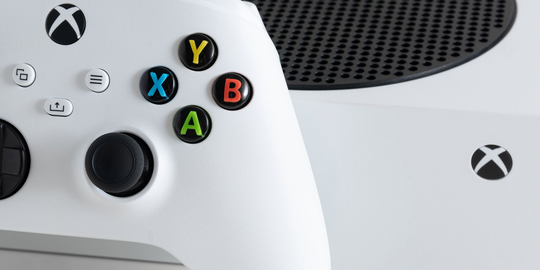The Xbox Series S: A Great Deal for Gamers, but a Challenge for Developers
The Xbox Series S could almost be called a Trojan horse. At a glance, it could be tempting to think that developers have plenty to gain by shifting to the budget console. After all, technically, the specs are leaps and bounds above the Xbox One, and it boasts native 4K support. However, the cheaper hardware compromises performance at the front-end and gives developers less to work with at the back-end, and it has caused quite a lot of headaches for both new and established studios.
Despite these pitfalls, Xbox has no plans to ditch its budget console. Speaking during Microsoft Studios' segment at the Xbox Games Showcase, Matt Booty makes it clear that developers cannot skip the Series S and launch exclusively on the Series X. “You can’t just go [to the Xbox Games Showcase] and look at X,” he says. “Developers are gonna have to plan on S, too.”
Booty goes on to suggest that the problems developers are facing aren’t inherent to the budget hardware but arise from a lack of experience on the platform. “This is our first generational leap in [Xbox] hardware in quite a while; it has a very specific set of capabilities,” he says. “Certainly, we will see games come out where it’s like, ‘Wow, I wish we had a little bit more CPU or a little bit more GPU to do this thing.’ But we are very confident that as the developers get experience on the platform and get better at planning, that those things will just kind of fall into place.”
Booty acknowledges, however, that developing for the Series S alongside Series X, PS5, and PC is more work for developers, and that performance is something they should try to avoid compromising at the front-end of a game’s development cycle. “I do acknowledge that it is on a hardware basis a little more work to be on S, and a little more work even to be on X at launch,” he says. “Because you’re moving to a new hardware platform and you’re moving to a new software platform, and often you’re moving to it alongside PC. And that’s just different than what it’s been in generations past.”
So, despite the increased workload, Booty maintains his confidence that games that run on Series S will experience performance bumps over time, particularly as developers build experience on the platform. “Our perspective on it is that games that are on S absolutely have the potential to improve over time,” he says. “What I mean by that is, the experience of 11 years of work on Xbox One that we can bring to bear to help make our games better. And a lot of that comes in the form of content. So, they’ve launched on S, hey, we had some extra CPU and GPU in development, and we can drop that in and make some things a little better.”
At launch, many games that run on Series S struggle to reach 60fps at their lowest settings, often with compromised smaller scale environments and simplified lighting effects, despite technically being able to render at 4K 30fps. Some developers have clearly struggled when it comes to Xbox’s performance expectations; they’ve suggested that, via reduction of key visual features, an Xbox game could run at 4K 60fps, despite struggling to maintain this at lower resolutions.
Baldur’s Gate 3 developer Larian has not confirmed an Xbox launch yet due to concerns about performance on the Series S, and in a Steam Community update about the game’s launch, Larian confirms that split-screen co-op cannot work to the same standard on both Series X and S. On the Xbox Gamer forums, Larian says “the most obvious way to do it is to have the same experience on X and S,” which would mean splitting features across the two models. “We do not want to do that, it would be a step back on X,” they say.
Xbox appears to be sticking to its guns as it continues its strategy. Following up on the Xbox Games Showcase, Phil Spencer unveiled another Xbox model, but it appears to be designed more as a competitor to the Xbox One X than a next-generation equivalent. It boasts 4K capabilities, but its performance is reportedly on par with Xbox One instead of Xbox One X, suggesting that Microsoft Studios’ developer input could lead to compromises on the more powerful Xbox model.
In the meantime, it’s likely that developers will have to continue navigating around the challenges of developing for the Series S.















